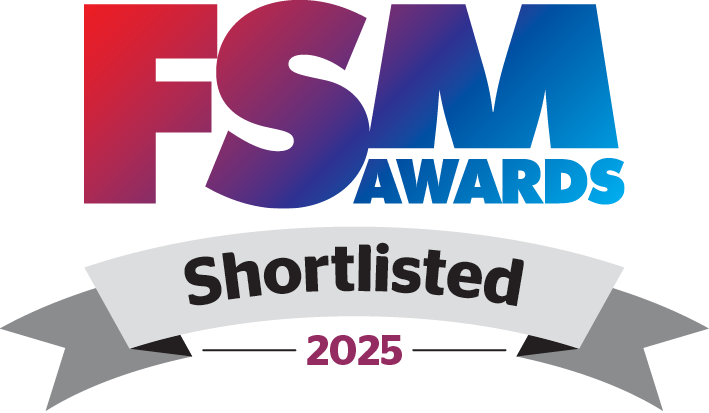Fire Management for Responsible Persons

This session focused on: how to ensure you know your fire management-related legal responsibilities; how to utilise your fire management policy and manage delegated responsibilities; and the requirement for a Fire Risk Assessment (FRA) and what to do with one when it is complete.
How to Ensure You Know Your Fire Management-related Legal Responsibilities
Fire management is governed by the Regulatory Reform (Fire Safety) order 2005, which has a few key areas of responsibility:
- A competent person completes an FRA.
- Unless a member of your team has completed suitable fire risk assessor training, this should be an external competent third party.
- Part of your contractor vetting process is to ensure your fire risk assessor is competent and suitably experienced.
- You must have plans to prevent fires from starting and spreading.
- Start with high-risk areas that require more protection such as kitchens, labs, D&T workshops and plant rooms
- Then review the protection available to escape routes leading to fire exits.
- You must have plans in place to evacuate all occupants promptly.
- This needs to include staff and pupils but also take into account those who cannot self-evacuate and those unfamiliar with your buildings, e.g. contractors and visitors.
How to Utilise Your Fire Management Policy and Manage Delegated Responsibilities
A non-delegable duty of care remains with the responsible person. They are defined as the headteacher/principal who works with any of the following:- the Trust
- Board
- Local Authority
- Charitable Body
- Diocese
The responsible person cannot manage all of the day-to-day requirements, therefore the tasks below can be delegated:
1. Training
- For example, a member of the SLT works with office support staff to provide fire safety e-learning to all staff
- Specialist training to wardens
- Training for specialist equipment, e.g., evacuation chairs
- NB: Judicium offer an eLearning package with instructor-led training for staff with special responsibilities:
(https://www.judiciumeducation.co.uk/training/fire-safety-leadership-in-schools-)
2. Evacuation Plans
- The SLT should lead on termly fire drills and follow up with a review meeting afterwards to understand if your evacuation plans are working or if anything needs changes.
- The SENCO and Medical leads should be involved with PEEPs for supported evacuation including equipment or grab kits and medication.
- The trained fire wardens should sweep isolated areas such as toilets and showers.
- Changes to a school building
- If you refurbish or build a new section to your school, this warrants an FRA review. New builds will have technical plans, fire engineering reports and design features that need to be taken into account, e.g., fire dampers, fire curtains/shutters or dry risers.
- Occupancy numbers
- If your school occupancy increases you need to assess your evacuation routes and plans are still sufficient for the number of staff, pupils and visitors present.
- Places of assembly
- Know your hall capacity from the fire risk assessment calculations to understand how many people can occupy the space standing, when seated (seating guidance) and in exam or event set ups.
3. Preventative maintenance
- The premises/facilities team should oversee competent contractors to maintain equipment and services, e.g. gas/electric, fire engineering controls.
- In-house inspections of fire doors, fire equipment, building and escape routes. NB: Judicium offers an eLearning module for premises staff and fire door inspection (https://www.judiciumeducation.co.uk/elearning/fire-door-awareness-for-premises-officers)
- The team should have the support of the SLT and the Governing Board/Trustees regarding the upkeep of the building when remedial works are required to maintain fire controls.
- Ensure appropriate records for external contractor servicing, in-house checks and testing as well as staff training are maintained centrally. NB: Judicium’s Jedu platform provides a Judicium fire logbook template, a Facilities Management dashboard to log and monitor remedial works and eLearning online training reports.
The Requirement for a Fire Risk Assessment (FRA) and What to do with One When it is Complete
- Ensure the information is accurate, relevant to your building and encompasses the whole site.
- Review the action plan to evaluate high-priority requirements, best practice and process easy fixes.
- See specialist help and guidance for any areas that are outside of your remit.
- For example, interpreting a fire strategy document for a new building or discussing an upgrade to a fire alarm and automatic detection.
- Discuss and set in policy the FRA review period
- We recommend an annual review by a competent person because each September every school gains new staff, new pupils and will have experienced some form of change over the summer holiday period.
Key Points to Take Away:
- Have a fire risk assessment completed by a competent person.
- Have an evacuation plan that includes supported evacuation and visitors.
- Provide training to your staff who hold delegated responsibilities to ensure they are competent in their fire management role.
Helpful Links:
Fire door inspection scheme - https://fdis.co.uk/
Fire Industry Association - https://www.fia.uk.com/
Additional Info:
To review Judicium’s forthcoming sofa sessions please click here.
Follow us on Twitter - @JudiciumEDU
© This content is the exclusive property of Judicium Education. The works are intended to provide an overview of the sofa session you attend and/or to be a learning aid to assist you and your school. However, any redistribution or reproduction of part or all of the contents in any form is prohibited. You may not, except with our express written permission, distribute or exploit the content. Failure to follow this guidance may result in Judicium either preventing you with access to our sessions and/or follow up content.
Related content
.png)
This blog is based on Judicium’s Health & Safety and SEND session on 26th November with resident expert India Cottenden
.png)
This blog is based on Judicium’s Food Safety Sofa session on 12th November with resident experts Sue Roberts and Tracey Killick

This blog is based on Judicium’s Health and Safety ‘Sofa Session’ on the 15th of October, with our resident expert Mike Wright.

This prestigious award celebrates our commitment to delivering expert, education-specific Health & Safety support that lifts the burden for school teams while raising safety standards across the sector.

This blog is based on Judicium’s Health and Safety ‘Sofa Session’ from 18th June, led by resident expert , Mike Wright, CMIOSH. This session focuses on the control of substances hazardous to health (COSHH) and their relevance in school settings, how assessments should be undertaken and what staff could be at risk.

Discover why Judicium has been shortlisted for Fire Safety Consultancy of the Year at the 2025 FSM Awards, recognising our expert support for schools and trusts in delivering sector-specific, compliant, and practical fire safety solutions.

Sofa Sessions | H&S